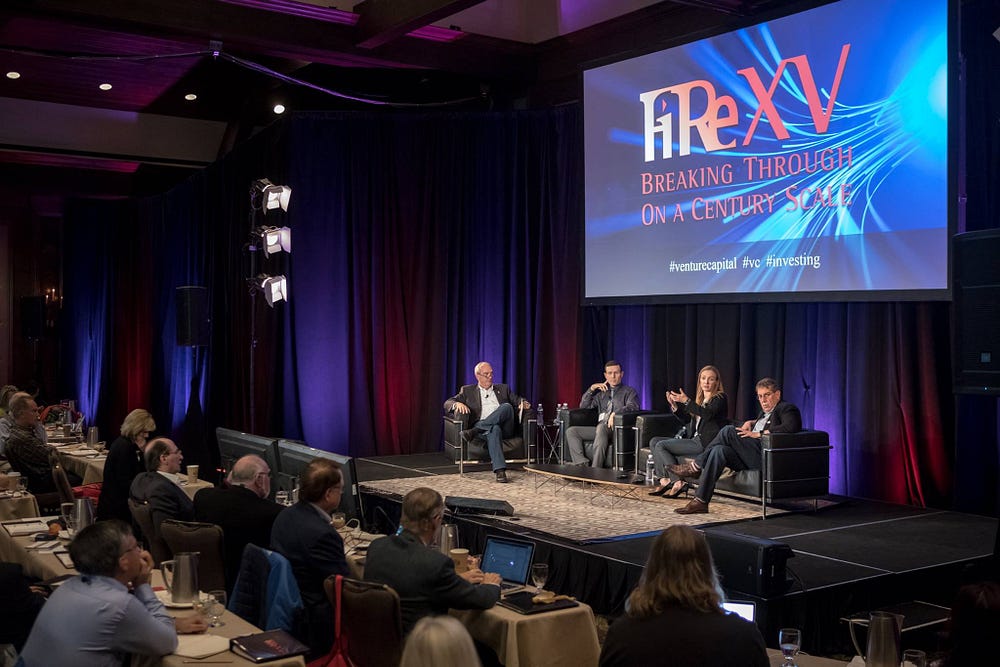FiRe 2017: Venture capitalists forecast the seas of change

by Rainey Cornaby
The session title “The Next Wave of Venture Investing” consisted of a panel of Mark Gorenberg, Managing Director of Zetta Venture Partners, Yanev Suissa, SineWave Ventures General Partner, and Dafina Toncheva, Partner at US Venture Partners. The panel was hosted by Ray Rothrock, CEO of RedSeal and former Venrock Partners and brought up themes of consumer trust and security.
Panelists discussed the investment trend of increased emphasis on cybersecurity and its importance now and in the near future. Currently, cyber security is a major focus of investment, but 10–15 years ago, there was only a handful of venture capital firms investing in cyber security. Toncheva referenced recent incidents, such as the Equifax hack, and possible governmental hacks perpetrated by North Korea, and their impact on making cyber and information security salient to the public. She emphasized the importance of the issue, stating hacks are “economically devastating, politically devastating, and a matter of national security.”
The issue of hacking and cyber security, extends beyond how it is currently considered, and is continually evolving alongside other technologies. Toncheva described multiple demonstrations relating to the future of security concerns, one involving scientists remotely hacking and controlling a pacemaker, and another in which scientists transmitted a computer virus by inserting genetic code into a cell, and then executing the program as the computer sequenced the DNA.
The conversation then moved to the topic of trust in technology. Gorenberg stated as a society, we are not held back by technological capabilities we are held back by what risks we are willing to take. Adoption and lack of user and institutional trust is the limiting factor, but companies are willing to adopt technological solutions incrementally when they see revenue generation or cost savings. He illustrated this with the example of a company capable of predicting patient kidney failure six months in the future. Hospitals were reluctant to adopt the technology as a diagnostic tool but have implemented it as a triaging aid.
Gorenberg explained institutional trust and adoption occur incrementally. Toncheva elaborated on increased adoption and trust, suggesting younger generations will usher in a sea of change. She stated they will rebel and support the use of new technologies because of their comparatively high comfort and familiarity with them.
Despite consumer slowed technological adoption and increased security risks, panelists were primarily optimistic about the future of investments and technology trends. Predictions forecasted a coming wave of positive technological changes in healthcare, artificial intelligence, automation, DNA storage, synthetic biology, and the health of the planet. Suissa expressed cynicism about some of the implications of forthcoming technology improvements.
“There will be negative and positive externalities,” Suissa said.
He emphasized many questions are sure to arise regarding responsibility, ownership, and where morality ultimately will fall.